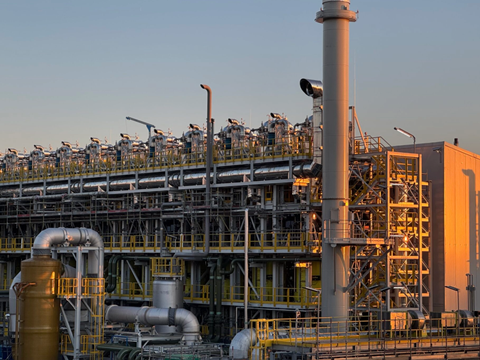
At its Geleen facility, Plastic Energy has converted hard-to-recycle post-consumer plastic waste into pyrolysis oil for the production of food-contact packaging, medical plastics, and more.
According to the European Commission, less than 30% of the 32 million tonnes of European plastic waste is currently recycled. In response, Plastic Energy previously joined forces with SABIC to establish its SPEAR facility, which utilizes Plastic Energy’s patented TAC chemical recycling process.
Said to repurpose waste that would otherwise be sent to landfill or incinerated, TAC breaks down mixed plastics using heat in an oxygen-free environment, and produces a replacement for conventional naphtha in existing petrochemical plants. This can then be used to manufacture ‘circular’ polymers for food-contact packaging and medical-grade plastics.
The technology has already been demonstrated at an industrial scale via Plastic Energy’s Spanish plants and is anticipated to plug directly into the existing plastics value chain.
SPEAR is expected to be the first example of third-party chemical recycling technology being integrated into an existing petrochemical facility and, once fully operational, recycle 20,000 tonnes of plastic waste annually. In turn, it is set to help EU Member States meet the Packaging and Packaging Waste Regulation’s target for all packaging to be fully recyclable by 2030.
The facility is expected to enter full commercial production later this year.
“Producing our first TACOIL at SPEAR is a major step forward for the plastic recycling industry,” said Ian Temperton, chief executive officer of Plastic Energy. “It underscores the capabilities of Plastic Energy’s technology, the robustness of our process and the dedication of our excellent team.
“We value the collaboration with our project partner SABIC and are proud to have achieved this milestone together.
“Recycling plastic waste into new plastics is critical to building a circular economy — and that’s exactly what this plant delivers. It boosts recycling rates, helps reduce CO2 emissions by diverting used plastic from incineration, and shows what’s possible when innovation meets scale.”
Similar news broke earlier this year when OMV completed the expansion of its proprietary ReOil technology at its Schwechat refinery. Here it intends to convert up to 16,000 metric tons of hard-to-recycle mixed plastic waste into chemical feedstocks every year.
Since then, Bain & Company has reported that 650 million metric tons of polyolefins must be chemically recycled globally to achieve cost parity with virgin plastic production in the next 20-30 years, with recycling polyolefins in Europe said to be almost twice as expensive as producing virgin polyolefins.
If you liked this story, you might also enjoy:
The ultimate guide to the Packaging and Packaging Waste Regulation in 2025
How are the top brands progressing on packaging sustainability?
Everything you need to know about global packaging sustainability regulation in 2025
The key to increasing the use of reusable packaging in supermarkets


















No comments yet